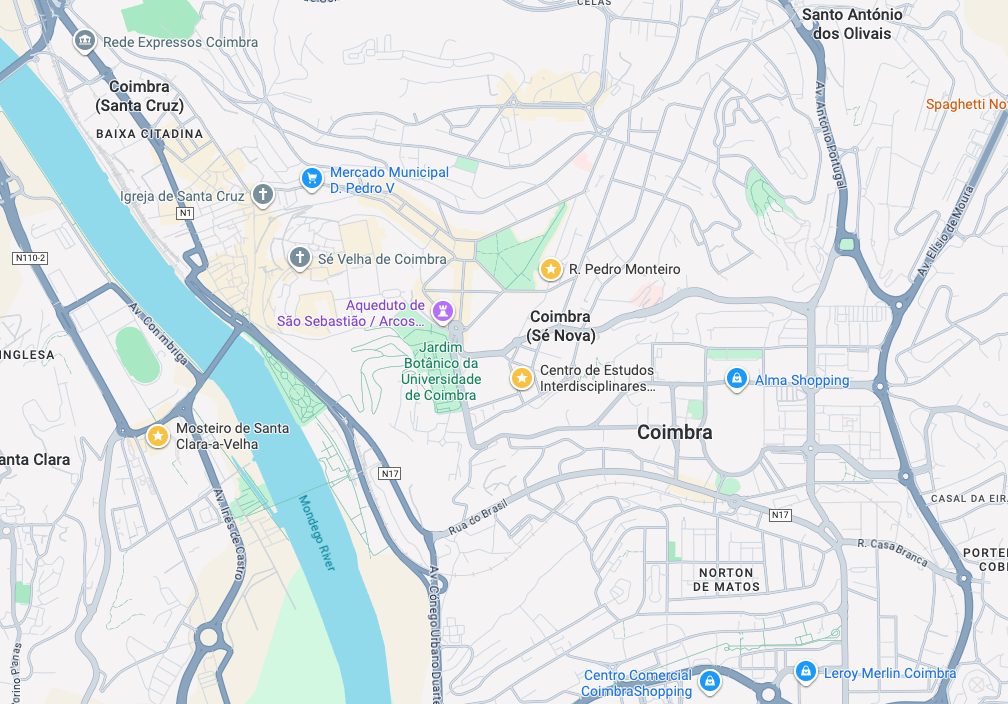See below for the Final 2025 Connected Past program.

Final Program (posted September 7, 2025)
16 September (CEIS20 room)
9:00 Workshops
17 September morning (CEIS20 room)
9:00 Workshops
*please note that workshop attendance required prior registration and is not available on a drop-in basis.
17 September afternoon (Centro de Interpretação de Santa Clara-a-Velha) – Day 1
14:00 Resurrecting the list: exploring Coimbra Botanical Garden in 1800 through multi-species network visualisation
Nathan Cornish
14:20 Specimens of Welwitschia mirabilis from Angola to Coimbra and from Coimbra to the rest of the world: a network analysis
Ana Margarida Dias da Silva; Maria Teresa Gonçalves
14:40 Networking the Australian Virtual Herbarium: Plant collecting and the circulation of botanical knowledge in the long nineteenth century
John R. Schaefer
15:00 “Good and Bad Soy”: Changing Networks and Food Regimes in Austria
Gabriel Tober
15:20 Discussion and Coffee Break
16:00 Mapping the Metamorphoses of the Venice Charter: Visualizing Networks of Translations and Interpretations
Claudine Houbart; Pierre-Henri Lefebvre
16:20 The Intersection of Humanism and Printing in Venice: Exploring Historical Cultural Networks
Emilio Cammarata
16:40 Networks of Mass Appropriation: The distribution of Aboriginal Cultural Material within European Museum Collections
Friederike Schmidt
17:00 End of day 1
17:30 Keynote Lecture – Diversifying networks, new kinds of relationships: comparing bio-social and socio-material windows on urbanisation processes in the Bronze Age Levant
Fiona Coward
18:30 Opening night reception
18 September (Casa Cultura Coimbra) – Day 2
9:20 From Archive to Map: Integrating Network and Spatial Analysis in 19th Century Bulgarian Historical Correspondence
Kristiyan Simeonov
9:40 Social network analysis and the interpellation of decision-making processes in historical contexts (18th and 19th centuries)
Ana Isabel Ribeiro
10:00 Mapping Maritime Networks: A Network Analysis of Ship Movements to Porto (1645 – 1713)
Joel Santos and Tânia Casimiro
10:20 Discussion and Coffee Break
11:00 Towards a Network of Recollection in Oral Histories
Jiajie Zhang, Frieda Schmidt, Andreas Vlachidis, Marco Humbel, Julianne Nyhan, Andrew Flinn, Valentina Prishchepova, Aleksey Varfolomeyev, and Florian Elleringmann
11:20 Analysing inter-state communication dynamics and roles in the networks of the
International Institute of Intellectual Cooperation
Ruben Rodriguez-Casañ, Elisabet Carbó-Catalan, Albert Solé-Ribalta, Diana Roig-Sanz, Javier Borge-Holthoefer, Alessio Cardillo
11:40 On nexus analysis of language mobility across Northern borderlands
Olga Solovova
12:00 Discussion and Lunch
14:20 Mapping Experiments in Art and Technology: A Semantic Knowledge Graph Approach
Cristina Pattuelli; Matthew Miller
14:40 “Progressives” vs. “Conservatives” and their Intermediaries in the Epistolary Network of Republican-era Chinese Buddhism
Marcus Bingenheimer
15:00 Modelling Aegean Maritime Networks in three Caricatures
Ray Rivers
15:20 Discussion and Coffee Break
16:00 Networks, Intermediates and Subordinates: Making the Early Medieval Church
Jamie Wood
16:20 Holy Zion Church in the Urban Network of Late Antique Jerusalem: A Spatial Narrative of the “Mother of All Churches”
Irina Barash
16:40 Discussion
19 September (Casa Cultura Coimbra) – Day 3
9:20 Local Networks of Qijia Period (2,300-1,600 BC) in Northwestern China: A Perspective from Jade
Yating Liao
9:40 Grave Goods in Indigenous Italic Necropoleis: Pottery and Fibulae at Sala Consilina and San Teodoro di Incoronata
Adrian Proestos
10:00 Crafting Practices and Consumption Patterns in Roman World. Statistical Analysis, Network Approaches and Spatial Visualisation of Key-Rings
Bogdan Lăpușan
10:20 Discussion and Coffee Break
11:00 Tracing the Evolution of the Doric Facade: A Network Analysis Approach
George Veloudios
11:20 Creating Data from Cuneiform Tablets for a Network Analysis of Hittite Imperial Administration: Prosopography and Documents from Late Bronze Age Emar
Lucas G. Freire
11:40 All Roads Lead to Veii: Using Networks to Contextualize Etruscan Inscriptions in Anagnia
Tom Francis
12:00 Discussion and Lunch
14:00 An Actor-Network Approach to the Production of Hittite Ceramic Tableware
Dylan G. Winchell
14:20 Tracing the Footsteps of Forgotten Ceramics – A network analysis of the potential spread
of provenanced and unprovenanced Red-Figure ceramics in Southern Italy c. 360BCE
Stephen J. Smith
14:40 Discovering children’s identities in Roman Dacia graves using statistical analyses
Marina Musteața
15:00 Discussion and Coffee Break
15:40 A Material Culture Network Approach to Egyptian Iconography in the Achaemenid Empire
Chana Algarvio
16:00 Poverty and Worship: Reconstructing Religious Networks as Social Support Institutions in Ancient Egypt
Hossam Hegazi; Tamer Ali
16:20 Discussion
16:40 Goodbye
Location of Coimbra Venues

